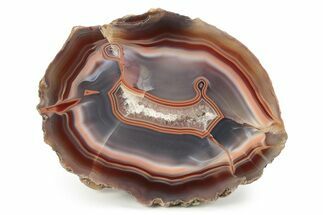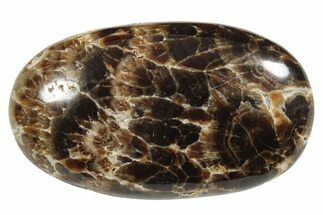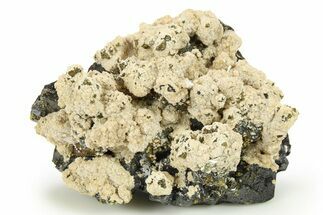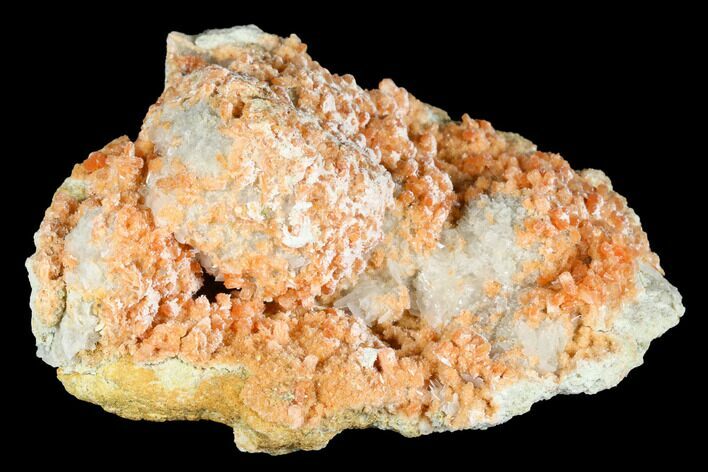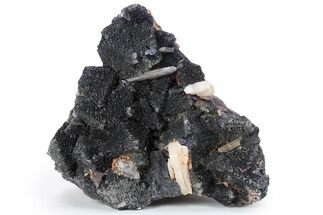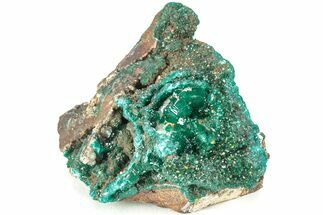This Specimen has been sold.
3.1" Red-Orange Stilbite with Laumontite and Calcite - Peru
This is a gorgeous zeolite association that was collected from Peru. It features red-orange stilbite crystal clusters that formed in association with laumontite and calcite. It's likely that this specimen is a part of a zeolite pocket find between 2006-2007 in Peru.
It comes with an acrylic display stand.
It comes with an acrylic display stand.
Stilbite is a tectosilicate mineral of the zeolite group that is commonly found in zeolite deposits. Crystals often form flowery bowtie or hourglass-shaped structures and come in a variety of colors. Some of the most beautiful colorations are the pink or peach tints.
About Calcite Crystals
Calcite crystals are a form of calcium carbonate (CaCO₃) known for their diverse shapes, transparency, and vibrant range of colors. They typically form in rhombohedral, scalenohedral, or prismatic shapes, often with well-defined, sharp edges and glossy surfaces. Calcite crystals are often translucent or transparent, sometimes displaying a double refraction effect where objects viewed through the crystal appear doubled. They can appear in various colors—white, clear, yellow, pink, blue, green, and orange—depending on impurities or trace minerals.
A notable characteristic of calcite is its reaction with weak acids like vinegar, which causes it to effervesce, or fizz, as it releases carbon dioxide. This property makes calcite crystals a key tool in geological identification and studies. Calcite forms in many environments, from sedimentary rocks like limestone and marble to hydrothermal veins.
Calcite crystals are a form of calcium carbonate (CaCO₃) known for their diverse shapes, transparency, and vibrant range of colors. They typically form in rhombohedral, scalenohedral, or prismatic shapes, often with well-defined, sharp edges and glossy surfaces. Calcite crystals are often translucent or transparent, sometimes displaying a double refraction effect where objects viewed through the crystal appear doubled. They can appear in various colors—white, clear, yellow, pink, blue, green, and orange—depending on impurities or trace minerals.
A notable characteristic of calcite is its reaction with weak acids like vinegar, which causes it to effervesce, or fizz, as it releases carbon dioxide. This property makes calcite crystals a key tool in geological identification and studies. Calcite forms in many environments, from sedimentary rocks like limestone and marble to hydrothermal veins.
SPECIES
Stilbite, Laumontite & Calcite
LOCATION
Ica Department, Peru
SIZE
3.1 x 2.5"
CATEGORY
ITEM
#173304
 Reviews
Reviews
